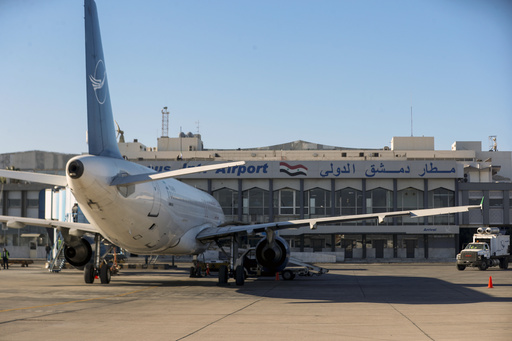The Israeli military issued a new evacuation order in central Gaza on Wednesday, signaling an anticipated offensive in the region. This announcement comes amidst ongoing discussions between Israel and Hamas, which indicate a potential move towards a ceasefire in the protracted conflict that has persisted for over 14 months.
Israeli military spokesperson Avichay Adraee shared the warning on X, specifying that several residential blocks in the Bureij refugee camp would be affected. Adraee alleged that Palestinian militants were launching rockets at Israel from this area. Residents have been instructed to relocate to a designated “humanitarian zone” in the Muwasi region. Throughout the conflict, Israeli media have frequently disseminated evacuation notices, resulting in the displacement of over 90% of Gaza’s population, most of whom have been forced to relocate multiple times.
On the diplomatic front, Israeli President Isaac Herzog announced a meeting with U.S. President-elect Donald Trump’s Middle East envoy, Adam Boehler, in Jerusalem. Boehler, who previously worked with Jared Kushner, recently met with Prime Minister Benjamin Netanyahu to discuss the unfolding situation.
Negotiations to establish a ceasefire and a plan for hostage releases have resumed after a prolonged hiatus. The proposals include a six-week cessation of hostilities during which Hamas would free 30 hostages, comprising three of four dual Israeli-U.S. citizens. In return, Israel would release hundreds of Palestinian detainees. Trump has consistently expressed a desire for a rapid conclusion to the ongoing conflict.
The Gaza Health Ministry reports that Israeli strikes and military actions have resulted in over 45,000 Palestinian deaths since the conflict began, though the ministry does not separate the death toll into combatants and civilians. It is noted that more than half of the casualties were women and children. Israel’s military actions were initially launched as a reprisal for a Hamas attack in October 2023, during which approximately 1,200 individuals were killed, and around 250 were abducted, with about 100 still believed to be in captivity.
In another development, the Israeli military confirmed that a group of Israeli settlers briefly crossed into Lebanon. The settlers were part of the Uri Tzafon movement, which advocates for increased Israeli settlement in southern Lebanon. After initially denying the incident, the military acknowledged that the civilians had crossed a short distance into Lebanese territory before being escorted back.
The military categorized the border breach as a serious incident and is conducting an investigation. They underscored the dangers of unauthorized border crossings, stressing the potential risks to the safety of those involved. The Uri Tzafon movement had claimed that the area breached is linked to historic Hebrew settlements.
The recent actions by Israeli settlers have occurred several times since the onset of the Israel-Hamas war, with reports of activists entering Gaza as well. The current Israeli government, regarded as the most right-wing in the nation’s history, has empowered settler ambitions to expand into places like southern Lebanon and northern Gaza.
Meanwhile, the U.N. envoy to Syria has stated that the country is in need of a genuine political transition in light of recent developments. During a visit to Damascus, Geir Pedersen emphasized that a credible political process is required to facilitate unity among various Syrian factions.
He expressed cautious optimism, highlighting the potential for a new beginning for Syria aligned with U.N. Security Council Resolution 2254, which aims to create a new constitution and establish credible elections following a transitional period. However, uncertainty remains regarding the role of Hayat Tahrir al-Sham, the main former rebel group currently in control of parts of Syria, in this transition.
Pedersen raised concerns over ongoing violence in northern Syria and stressed the importance of humanitarian aid and lifting Western sanctions on the country.
In Israel, hundreds of students staged walkouts from schools to advocate for the immediate release of hostages held by Hamas amidst signs of progress in ceasefire negotiations. Students particularly focused on highlighting the plight of those still captured following the October 7 attack that ignited the ongoing conflict, where approximately 100 people remain hostages.
Also in news from Israel, Prime Minister Netanyahu continued his testimony in a series of corruption trials, denouncing the charges against him as baseless. His trial, involving serious allegations of fraud and bribery, has drawn considerable attention, especially given the current security situation.
In Syria, the Damascus airport has reopened for domestic flights, marking a significant event following the government’s fall. While international flights are not yet set to resume, officials have expressed optimism about restoring normalcy in the region.
Lastly, the head of the U.N. migration agency shared insights from her recent visits to Syria, noting that the interim leadership recognizes the daunting tasks ahead. She emphasized the urgency for international cooperation to aid the rebuilding of Syria, where a significant influx of individuals returning to their homes is being observed after years of tumultuous conflict.
